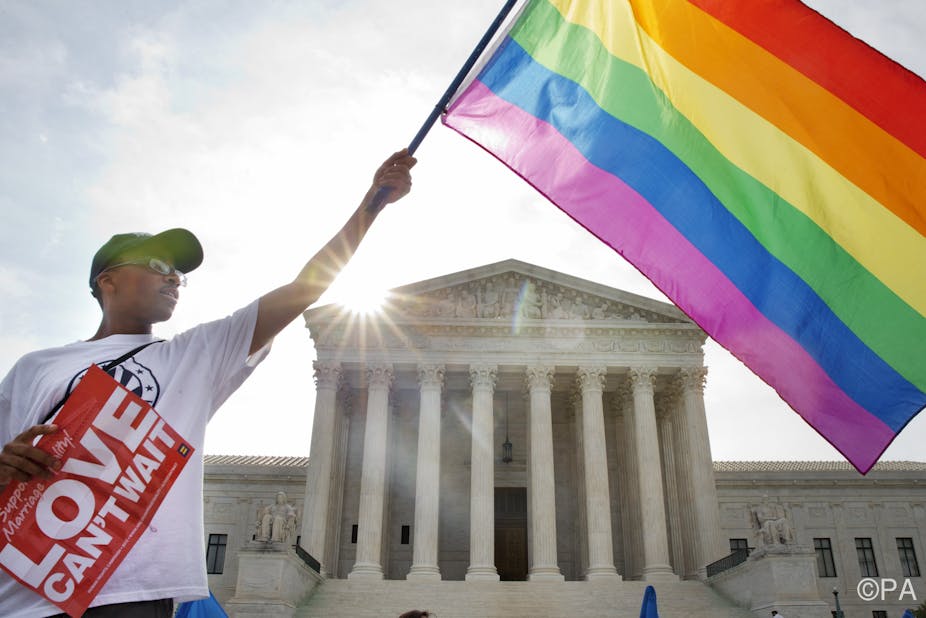In a landmark decision, the nine justices of the US Supreme Court ruled that the US Constitution guarantees marriage as a right for all, including gay and lesbian couples. And when the US Supreme Court rules on an interpretation of the US Constitution, that ruling is final.
Although the Supreme Court was divided 5-4 on the issue, this decision is just as legally binding as a unanimous one. In the case of Obergefell v. Hodges (and three related cases) the court found that the US Constitution guarantees a right to same-sex marriage. This means that all 50 states will have to allow same-sex marriage, and recognise same-sex marriages entered into in other states. The decision will also overturn the ban on same-sex marriages in 13 states across the US.
Writing for the court, Justice Kennedy said gay and lesbian couples have a fundamental right to marry: “no union is more profound than marriage, for it embodies the highest ideals of love, fidelity, devotion, sacrifice, and family,” he wrote. “In forming a marital union, two people become something greater than once they were.”
While acknowledging that individuals may have differing views as to whether same sex marriage is appropriate, Justice Kennedy stated that the law is clear on the subject: “the Constitution, however, does not permit the state to bar same-sex couples from marriage on the same terms as accorded to couples of the opposite sex.”
A momentous event
The decision will probably rank with other major decisions by the US Supreme Court over the years that have changed history, and the social fabric of America. Cases such as Brown vs Board of Education (1954), which ended segregation, and Roe vs Wade (1973), which legalised abortion, come to mind.
There are other cases, too, when history turned on a vote of the justices. For instance, in US vs Nixon (1974) the US Supreme Court order President Nixon to turn over the Watergate tapes, forcing President Nixon from the White House two weeks later. As well as Bush vs Gore (2000), which decided the presidential election that year.
The 13 states that prohibited same sex marriage – including Ohio, Texas and Michigan – must now allow same sex couples to be married, and respect and recognise the marriages of same sex individuals entered into in other states. The case that immediately comes to mind is Loving vs Virginia (1967). In this case, the US Supreme Court invalidated laws in 24 states, which prohibited interracial marriage.
As some Southern states have been rushing to remove symbols of the old Confederacy from state buildings, following the outcry over the Charleston church shootings, other states will now have to change their practice on same sex marriage with all due haste. It has been exciting week in America.

